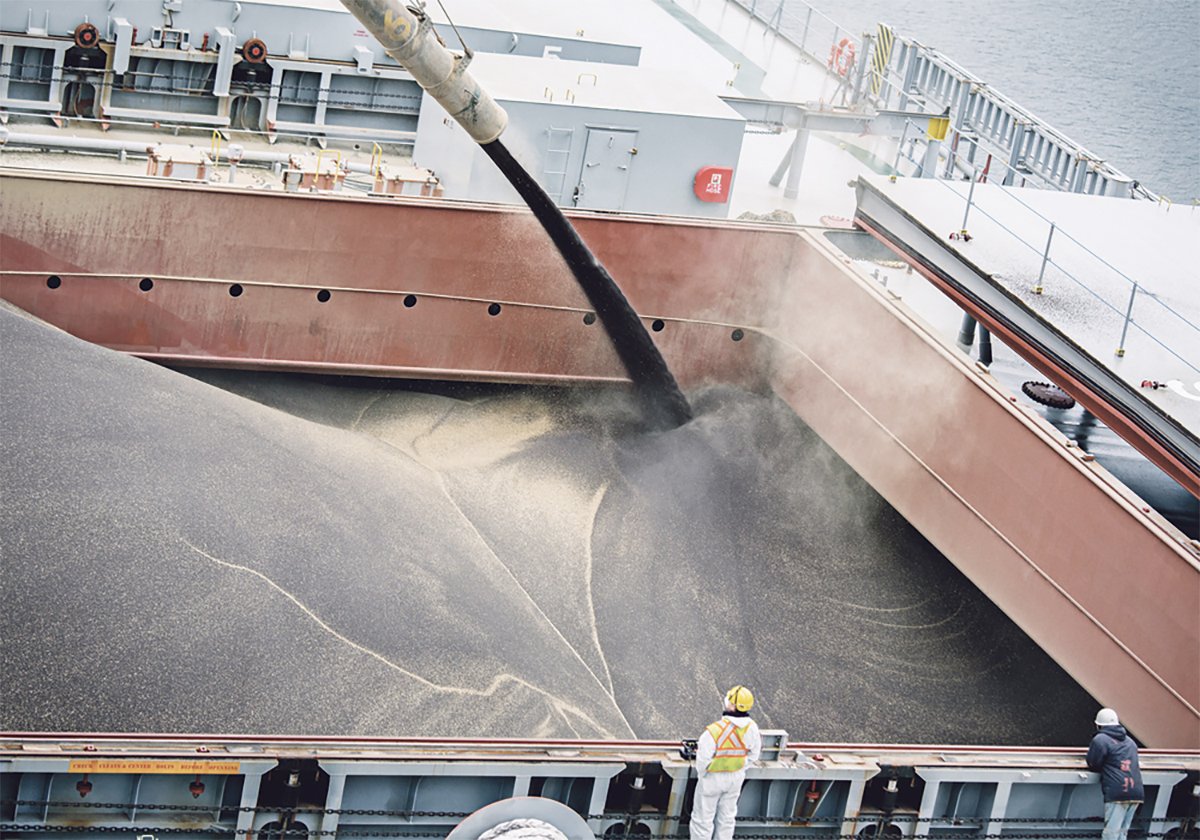Farmers have learned patience is a virtue when it comes to making headway on an issue at the World Trade Organization.
For years Canadian growers have waited for an announcement on further subsidy reductions through the WTO and it could be a while yet.
But within two months the international body will deliver a verdict on a different subject that could have an immediate impact on Canada’s growers.
A WTO dispute settlement panel will issue a decision in early January on whether the European Union has employed what amounts to a de facto ban on genetically modified crops.
Read Also

Exports off to a slow start after last year’s torrid pace
Canadian grain, oilseed and pulse exports are off to a slow start, but there are some bright spots, according to the Canadian Grain Commission’s most recent weekly export data report.
Canada, the United States and Argentina made the allegation on May 13, 2003, stating that the EU started suspending its biotech approval procedures in October 1998.
If the complainants are successful, it could create a more favourable regulatory climate for GM crops in Europe.
“What we’re asking is for the EU to base their approvals on scientific opinions and to proceed,” said Chantal Sicotte, Agriculture Canada’s senior trade policy analyst for Europe.
She said a ruling in favour of the complainants could pave the way for more fluid trade of grains and oilseeds with Europe. If biotech canola were approved in the EU it would allow Canada to help meet the demands of the burgeoning biodiesel industry there. It would also eliminate the chance that shipments of wheat, barley and other non-GM crops could be refused for containing trace amounts of GM material.
Sicotte acknowledged the EU has approved a few GM crops since the dispute was launched. But she said applications in the cumbersome system are bounced around in various committees for years.
“It takes forever,” said Sicotte.
“It takes so long to approve something that by the time they approve it, it is not commercialized anymore.”
Europe conducts scientific assessments on applications but instead of basing the decision on those results, the science can be ignored when the application is voted on by the 25 member states.
“We’re asking them to make their regulations work. They have them but they just don’t work,” said Sicotte.
Groups on both sides of the biotech issue await the WTO ruling, rumoured to be the longest panel report in the history of the WTO and the General Agreement on Tariffs and Trade.
Greenpeace argued consumers’ right to say no to GM food is at stake and that Canada, the U.S and Argentina are attempting to impose the biotech industry’s corporate agenda on the world in the name of free trade.
It also said by attacking the EU’s regulatory system, the three exporters are signalling to developing countries that they will use the WTO against them if they try to restrict GMOs.
In its submissions to the dispute panel, the EU contends it has never had a de facto moratorium on GM approvals. However, it does have legitimate concerns about the risks surrounding the technology, concerns shared by international conventions like the Cartagena Protocol on Biosafety.
It said approvals were slowed by requests for additional information put to applicants at different stages in the process, but those requests were justified based on risk assessment requirements.
Sicotte said the interim report in January will be distributed only to the parties directly involved in the dispute, with a final public report expected by the end of March.
A finding in favour of the biotech exporters could affect trade with other countries as well, such as African nations that have adopted the EU stance on GM crop approvals.
“They would need a reason more than the politics to refuse GMOs,” said Sicotte.

















